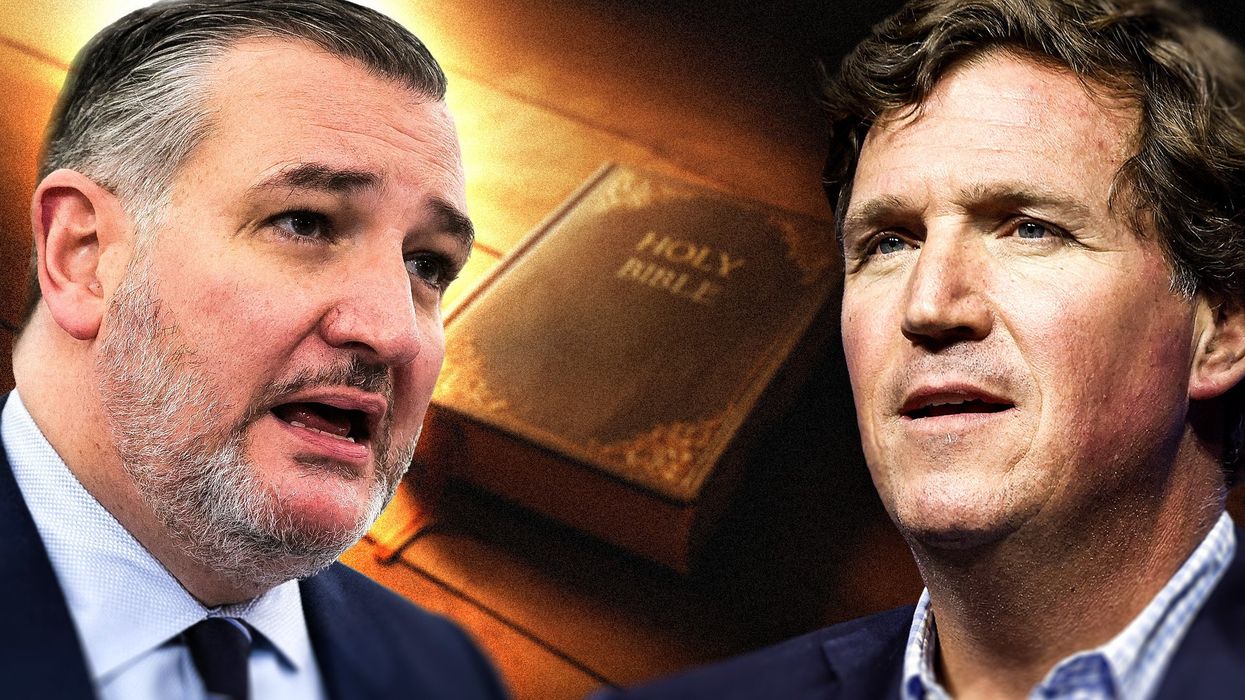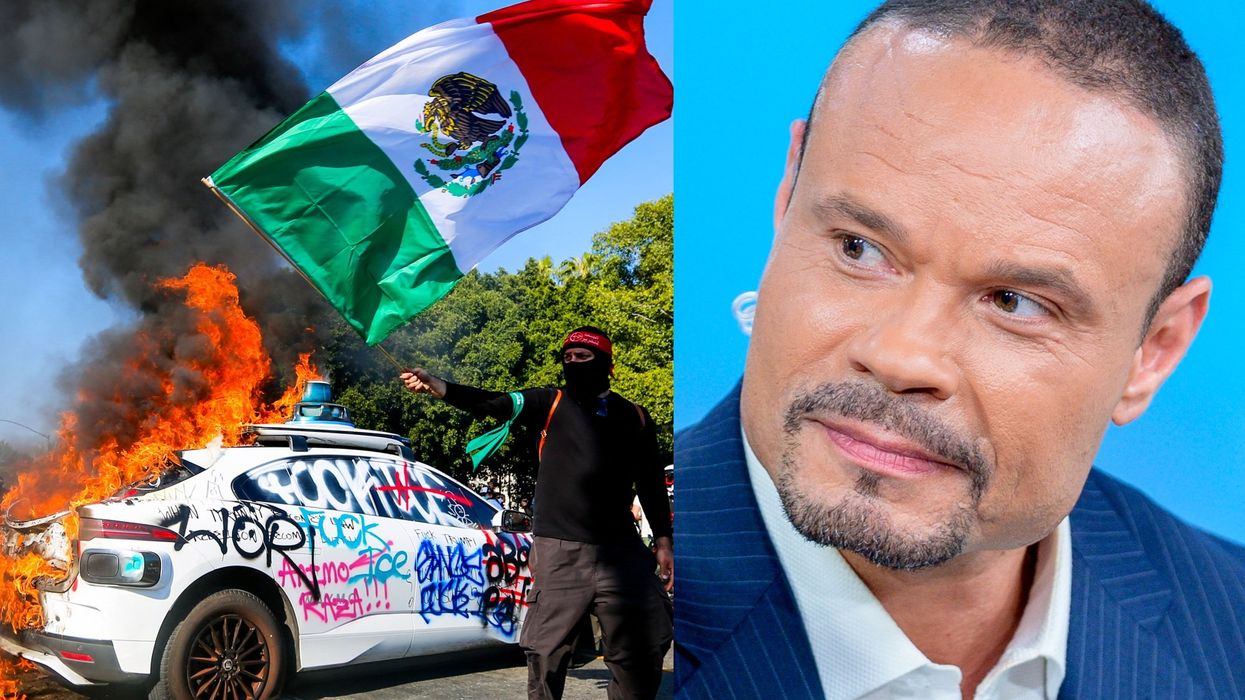After the 2012 drubbing, the Republican National Committee said the party "must embrace and champion comprehensive immigration reform," or its "appeal will continue to shrink." But after GOP candidates increased their share of the Hispanic vote in key 2014 races, the RNC says immigration is "not the only issue" of concern to Hispanic voters.
 Sen. Marco Rubio (R-Fla.) speaks during a news conference on immigration reform April 18, 2013 on Capitol Hill in Washington, DC. (Getty)
Sen. Marco Rubio (R-Fla.) speaks during a news conference on immigration reform April 18, 2013 on Capitol Hill in Washington, DC. (Getty)
"The gains Republicans made with Latino voters in key races was because they showed up, engaged and offered solutions to their top issues," Ruth Guerra, RNC director of Hispanic media, told TheBlaze. "While an important issue for Latinos, immigration is not the only issue. At a time when tens of thousands of undocumented immigrants crossed the U.S.-Mexico border over the summer, all Americans want to see the border secured. Once that is done, the next steps can be taken. "
Republicans surpassed 40 percent of the vote in several key races in Texas, Georgia, Nevada and Kansas.
Nationally, Hispanic voters heavily favored Democrats in House races by 62 percent to 36 percent, according to a Pew Research Center poll. But, that’s down nominally from 2012 when House Democratic candidates got 68 percent of the Hispanic vote.
“Like anybody else, any other demographic, people are starting to see there is no future in the Obama administration,” Gonzalo Ferrer, acting chairman of the Republican National Hispanic Assembly told TheBlaze. “Immigration reform is used by Democrats to create a rift. If they wanted an immigration bill, they would have passed it with Obamacare and they didn’t.”
Passing immigration reform was among changes the Republican National Committee suggested in its March 2013 evaluation, popularly known as the “autopsy” to explain why the party lost in 2012.
“We are not a policy committee, but among the steps Republicans take in the Hispanic community and beyond, we must embrace and champion comprehensive immigration reform,” the March RNC report said. “If we do not, our Party’s appeal will continue to shrink to its core constituencies only. We also believe that comprehensive immigration reform is consistent with Republican economic policies that promote job growth and opportunity for all.”
Comprehensive immigration reform would include bestowing some legalization on illegal immigrants, which supporters call a “pathway to citizenship” and opponents call “amnesty."
Ferrer supports immigration reform and doesn’t think the GOP has helped itself on the issue, recalling the 2007 debate. But, he doesn’t believe that is the driving factor among Hispanic voters, particularly younger voters.
“When I think about the immigration debate, it was absolutely horrendous. Republicans shot themselves in the foot,” Ferrer said. “But if you look at young Hispanics, born here, they are Americans. They want America to succeed.”
Poll numbers seem to back that up to some extent.
What do the Numbers Say?
A Pew Research Center poll found that 49 percent of Latino voters identified the economy as the number one issue, while health care was a distant second at 24 percent. Third on the list was immigration, with just 16 percent calling it the most important issue. A majority of 54 percent said a candidate’s position on immigration is not a deal breaker. However, the same poll also said 66 percent of Latino voters say passing immigration legislation is extremely important to them.
The National Council of La Raza, a liberal Hispanic group, cites a Latino Decisions poll on election eve that says immigration is the top issue, with 45 percent of Hispanic voter, while the economy trails at 34 percent.
“This is a call to action for both parties,” NCLR president Janet Murguía said in a statement after the election. “We fully expect the president to act boldly, but that action should spur Congress to pass comprehensive immigration reform at long last. It’s not an either/or situation. For the good of the nation, we need both the president and Congress to act now. Latinos will expect the GOP to use its majority position to not only make inroads with our community but, most importantly, do what’s in the best interest of our country.”
An NCLR spokesman referred TheBlaze to Latino Decisions, which did not respond to inquiries.
Republicans have not lost support from the Hispanic population over not passing comprehensive immigration reform, said Al Garza, president of the Conservative Hispanics of America.
“Most Hispanics consider themselves Americans,” Garza told TheBlaze. He added, “Groups like La Raza talk about the Latino community, or Hispanic community. There is no Hispanic community. There is a Hispanic population.”
Garza added that individuals of Hispanic origin in the United States have different views and certainly don’t all favor granting legal status to illegal immigrants nor oppose all voter ID laws.
Where did Republicans Make Gains?
In Texas, Republican Greg Abbott captured 44 percent of the Hispanic vote in the governor’s race, compared to Republican Gov. Rick Perry in 2010 who captured 38 percent of the Hispanic vote, according to exit polls. In Georgia, Republican Gov. Nathan Deal carried 47 percent of the Hispanic vote. And in Kansas Gov. Sam Brownback actually beat his Democratic opponent among Hispanic voters, carrying 47 percent to 46 percent of this demographic in what was seen as a competitive race.
Nevada Gov. Brian Sandoval, a Hispanic Republican, tripled his share of the Hispanic vote from 2010 to 47 percent in 2014, according to the Latino Decisions poll. On the down side for the GOP, Florida Gov. Rick Scott, who captured 50 percent of the Hispanic vote in 2010, captured just 38 percent this year, according to the Pew poll.
“The Republican mission is to grow our party by expanding the electorate and the results last Tuesday night show that we are succeeding,” Guerra of the RNC said. “We saw it in Texas where Governor Greg Abbott won 44 percent of the Hispanic vote, up 6 points from 2010. This is in spite of Texas Battleground and celebrities like Eva Longoria spending time and vast resources in the state. The reality is when Republican candidates show up, listen, and talk to Latinos about their top issues like job creation and access to a quality education - our message appeals and resonates.”
Did Obama Lose the Hispanic Base by Delaying Executive Action?
It doesn’t seem to be the case that Hispanics were angry with Obama for not taking executive action before the election to curb deportations.
The Pew poll also found that 35 percent of Hispanic voters were disappointed that Obama did not take executive action earlier in the year, while 26 percent are pleased. Another 32 percent say they haven’t heard about the matter.
Obama is pledging to take executive action before the end of the year.
Ferrer doesn’t know if an executive order from President Barack Obama would make Hispanic voters more favorable to Democrats.
“The practical effect is that it would hold Hispanic immigrants in that system of ransom because that just means permit expirations and due dates are coming,” Ferrer said. “Hispanics are smart. They understand this is being done to make a rift.”
What About the 2016 Presidential Race?
As far as the 2016 presidential race goes, former Secretary of State Hillary Clinton has a 64 percent favorable rating in the Latino Decisions poll. The four top Republicans among Hispanic voters don’t break 40 percent, with former Florida Gov. Jeb Bush getting a 34 percent favorable rating, Florida Sen. Marco Rubio getting a 31 percent favorable rating and Texas Sen. Ted Cruz getting a 30 percent favorable rating. Kentucky Sen. Rand Paul gets only 21 percent favorable, according to the Latino Decisions poll.
But noteworthy is that Rubio; a co-sponsor of the immigration bill that passed the Senate in 2013 is essentially tied with Cruz who staunchly opposed it. Neither is far behind Bush, who has spoken out in favor of immigration reform this year.
The Latinos Decision poll found that 37 percent voted to “support the Latino community” while 34 percent voted to “support the Democrats.” Asked if Democrats care about Latinos, 48 percent said yes, while a combined 36 percent said that Democrats either don’t care or are hostile.
But, Latino voters are strong on Democratic issues, with 78 percent backing an increase in the minimum wage to $10.10 per hour, while 77 percent of Hispanics polled in some of the more competitive states this year, Florida, Georgia, Kansas, North Carolina and Texas, Latino voters wanted their states to expand Medicaid under Obama care.

 Sen. Marco Rubio (R-Fla.) speaks during a news conference on immigration reform April 18, 2013 on Capitol Hill in Washington, DC. (Getty)
Sen. Marco Rubio (R-Fla.) speaks during a news conference on immigration reform April 18, 2013 on Capitol Hill in Washington, DC. (Getty)





